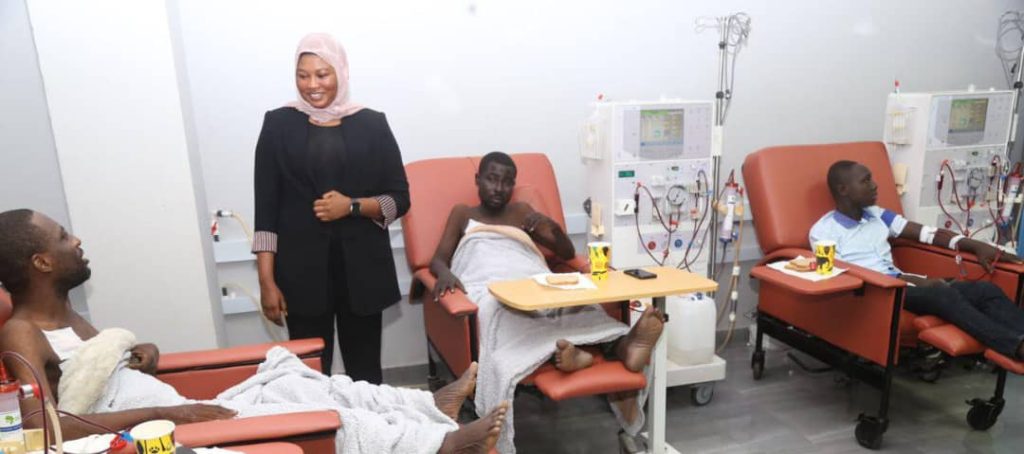Following the launch of the free dialysis treatment program, the Accra Newtown Islamic Hospital has significantly enhanced its capacity to provide dialysis care.
Following the launch of the free dialysis treatment program under Ghana’s National Health Insurance Scheme (NHIS), the Accra Newtown Islamic Hospital has significantly boosted its capacity to deliver dialysis care.
Since the government initiative began on December 1, 2024, the private facility has seen an increase in dialysis patients, rising from 15 to 80. Equipped with 10 dialysis machines and two isolation units, the hospital now provides treatment for up to 30 patients daily.
Previously, dialysis services were mostly limited to public hospitals, and the costs were prohibitive for many. Under the new policy, patients can access free treatment at accredited private facilities like the Accra Newtown Islamic Hospital. The government’s standard session fee of GH₵491 has replaced the hospital’s previous GH₵500 rate, easing the financial burden for low-income patients.
The hospital’s General Manager, Ms. Ramatu Issah, described the initiative as transformative, noting that many young patients who previously struggled to afford the monthly GH₵6,000 cost for dialysis can now find relief. “This program has brought immense relief to patients, their families, healthcare facilities, and the nation,” she said.
The policy, announced by Vice President Dr. Mahamudu Bawumia, builds on a successful pilot for patients under 18 and over 60 years of age. It aims to alleviate the financial stress of kidney disease across the country.
Ms. Issah emphasized the importance of preventive measures, urging Ghanaians to adopt healthier lifestyles to reduce kidney disease prevalence, warning that the condition could become a significant public health threat.
The hospital offers a wide range of services, including outpatient and inpatient care, diagnostics, and specialized treatments like ENT, dental, and eye care. With plans to expand the dialysis program to other regions, the facility remains a key player in Ghana’s healthcare system.
Ms. Issah expressed optimism about the government’s commitment to sustaining the initiative, mobilizing resources, and supporting healthcare providers to ensure the long-term success of the free dialysis program.












